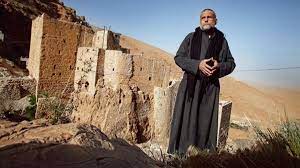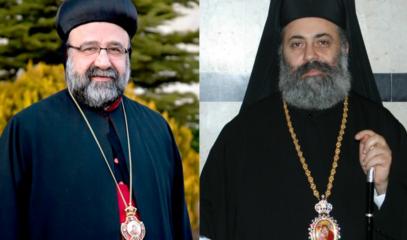UN sets up an independent body to vet the fate of 100,000 people missing during the Syrian conflict
With 83 votes in favour, 11 against and 62 abstentions, the General Assembly approved the creation of a body to look into one of the open wounds of the war. Syria as well, as China, Iran and Russia voted against. For Syrian envoy, this is just Western "interference". This comes ten years after the disappearance of Fr Dall'Oglio and the Orthodox bishops of Aleppo.
Damascus (AsiaNews) - The United Nations General Assembly passed a resolution setting up an independent body tasked with shedding light on the fate of at least 100,000 people who went missing during the dark days of Syria’s civil war, this despite opposition from Syria and the abstention of some countries, including Lebanon.
Yesterday’s decision is a starting point in the quest for the truth about a wound that is still open and concerns the fate of people treated hitherto as collateral damage, including prominent members of Syria’s Christian Churches, like the two Orthodox bishops of Aleppo who went missing in April 2013, and Jesuit Fr Paolo Dall'Oglio who disappeared in July that year.
“After 12 years of conflict and violence in the Syrian Arab Republic, little progress has been achieved in alleviating the suffering of families by providing answers as to the fate and whereabouts of all missing persons," reads the resolution, which passed with 83 votes in favour, 11 opposed and 62 abstentions.
The Independent Institution on Missing Persons in the Syrian Arab Republic will "clarify the fate and whereabouts of all missing persons" in the country and "provide adequate support to victims, survivors and the families of those missing."
However, for Syrian Ambassador Bassam Sabbagh, “This draft clearly reflects [a] flagrant interference in our internal affairs and provides new evidence of the hostile approach being pursued by certain Western States against Syria,” especially the United States.
The resolution itself does not specify how this body should be set up, but calls on the UN secretary-general, the UN high commissioner for human rights, and other relevant parties to define its mandate in the next 80 days.
The text specifies that it will “ensure participation and representation of victims, survivors and the missing persons’ families,” guided by a victim-centred approach.
“A much-needed initiative!” tweeted the UN Human Rights Office. “Families have [the] right to know [the] fate & whereabouts of loved ones, to help heal society as a whole”.
Human Rights Watch (HRW) welcomes the vote as well, but adds that the new body must have the right tools to do the job.
Yesterday’s vote came after UN chief Antonio Guterres called for such an entity in a report last August, noting that families’ queries deserve an answer.
A family association representative said that no one should have to watch “leaked videos of massacres (on social media) to see if your loved one is among the decapitated, mutilated bodies”.
The Catholic Church in Syria too wants to know what happened to some of its own members, like Fr Dall'Oglio, who founded the community in Deir Mar Musa al-Habashio, about 80 kilometres north of Damascus.
The clergyman, who hails from Rome (Italy), has been missing now for a decade. Over this period, various rumours have been reported, but none has ever proven reliable; the last traces lead to Raqqa, a former stronghold of the Islamic State (IS) in Syria.
A major player in Islamic-Christian interfaith dialogue, Fr Dall'Oglio went missing overnight on 28-29 July 2013 after visiting IS headquarters to try to engage the jihadi group in dialogue and ask for the release of hostages the group held.
Two prelates from Aleppo also went missing. Syriac Orthodox Bishop Yohanna Ibrahim and Greek Orthodox Bishop Boulos Yaziji were kidnapped in Kafr Dael, a town about 10 km from Aleppo, on 22 April 2013, shortly before 6 pm.
According to some sources, the two prelates were negotiating the release of Frs Michel Kayyal and Maher Mahfouz, kidnapped in February of that same year.
Their car was stopped at a checkpoint by armed men, possibly Chechen jihadis who shot and killed the driver, a deacon. They have not been heard of ever since.
These cases are different from most abductions since no one claimed responsibility or asked for ransom money, coming at the height of the Syrian conflict when jihadi groups were at their most dangerous.
On the tenth anniversary of their disappearance, last 22 April, the Middle East Council of Churches (MECC) held an "ecumenical day" to mark their absence, hoping that this might generate some information about their fate. So far, this has not been the case.
22/09/2025 18:50
11/08/2017 20:05








.png)










